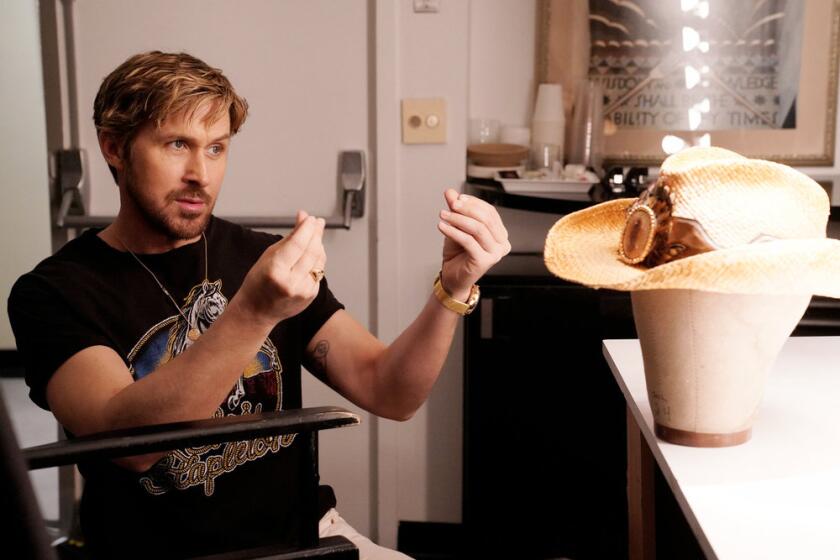British writer created Rumpole
John Mortimer, a British lawyer and writer who created the character Horace Rumpole, a disheveled barrister memorably featured in the popular television series “Rumpole of the Bailey,” died Friday at his home in Oxfordshire, England. He was 85.
The cause of death was not reported.
Mortimer, the author of more than 30 works of fiction and dozens of plays, was best known in the United States for the “Rumpole” series, which starred actor Leo McKern as the unkempt defense attorney who had a cast of louts as clients.
The comic series was based largely on Mortimer’s experiences as one of Britain’s leading courtroom advocates and defenders of civil rights and free speech. Rumpole’s motto of “Never plead guilty!” was, in fact, Mortimer’s own.
Referring to his dual career in his 1982 autobiography, “Clinging to the Wreckage,” Mortimer claimed “with no particular vanity” to be “the best playwright ever to have defended a murderer at the Central Criminal Court.”
He published his first novel in 1947, a year before he joined the British bar. Beginning in the 1950s, Mortimer wrote dozens of plays and television scripts. He was credited with writing the screenplay for the acclaimed 1981 British TV miniseries of Evelyn Waugh’s “Brideshead Revisited.” He also adapted several Graham Greene stories for British television and wrote a screenplay based on John Fowles’ novel “The Ebony Tower” for a 1984 television film starring Laurence Olivier.
Mortimer’s autobiographical play, “A Voyage Round My Father,” starring Alec Guinness, was a theatrical hit in London in the early 1970s and was made into a 1982 film with Olivier playing Mortimer’s father, an imposingly gruff lawyer.
Nonetheless, Mortimer’s greatest creation was the grizzled and bemused Rumpole, who first appeared in a 1975 television play. He wore an ill-fitting barrister’s wig, trailed cigar smoke and ashes, and could often be found tippling cheap claret in Pommeroy’s Wine Bar. With accused killers, burglars, prostitutes, pornographers and schemers of every stripe as his clients, Rumpole triumphed in the most hopeless legal cases.
He outfoxed his opponents in the courtroom, but at home he was constantly browbeaten by his formidable wife, Hilda, better known as “She Who Must Be Obeyed.”
“Rumpole has customarily been described as a great comic creation,” lawyer and critic Marcel Berlins wrote in London’s Sunday Times. “He deserves to lose the limiting adjective, comic. He is simply one of the great fictional characters of modern English literature.”
John Clifford Mortimer was born April 21, 1923, in London. He interrupted his studies at Oxford University during World War II to write propaganda scripts for the British government.
Mortimer graduated from Oxford in 1947, joined the British bar a year later and handled all kinds of cases. Over time, he became an expert in free speech issues, successfully defending the British publishers of D.H. Lawrence’s “Lady Chatterley’s Lover” and Hubert Selby Jr.’s “Last Exit to Brooklyn” in landmark obscenity cases. In 1977, Mortimer successfully defended the Sex Pistols, the punk rock group whose first album’s title, “Never Mind the Bollocks, Here’s the Sex Pistols,” was deemed obscene by British authorities.
He retired from the law in 1986 to devote himself to writing. He rose before 6 a.m., fortified himself with a glass of champagne and produced 1,000 polished words each day. In addition to his Rumpole novels and stories, he published three volumes of memoirs; two collections of interviews with celebrities; and the “Titmuss” trilogy, which was about politics and power in Margaret Thatcher’s England and became a popular TV serial in Britain.
Mortimer was politically liberal but had a socially conservative bent. He supported the monarchy and fox hunting but was skeptical of feminists. He said he believed in everything about religion except God.
His first marriage, to writer Penelope Fletcher Mortimer, ended in divorce.
In 2004, Mortimer disclosed that he had a son from an affair in the 1960s with actress Wendy Craig. The son did not learn of his parentage for more than 40 years, but he and Mortimer had become close.
Other survivors include Mortimer’s second wife, Penelope Gollop, whom he married in 1972 and called “Penny the Second”; two children from his first marriage; and two daughters from his second marriage, including actress Emily Mortimer.
More to Read
Only good movies
Get the Indie Focus newsletter, Mark Olsen's weekly guide to the world of cinema.
You may occasionally receive promotional content from the Los Angeles Times.






